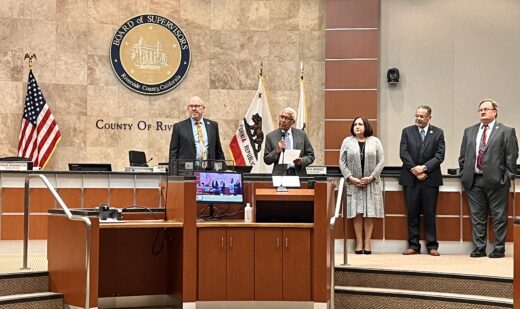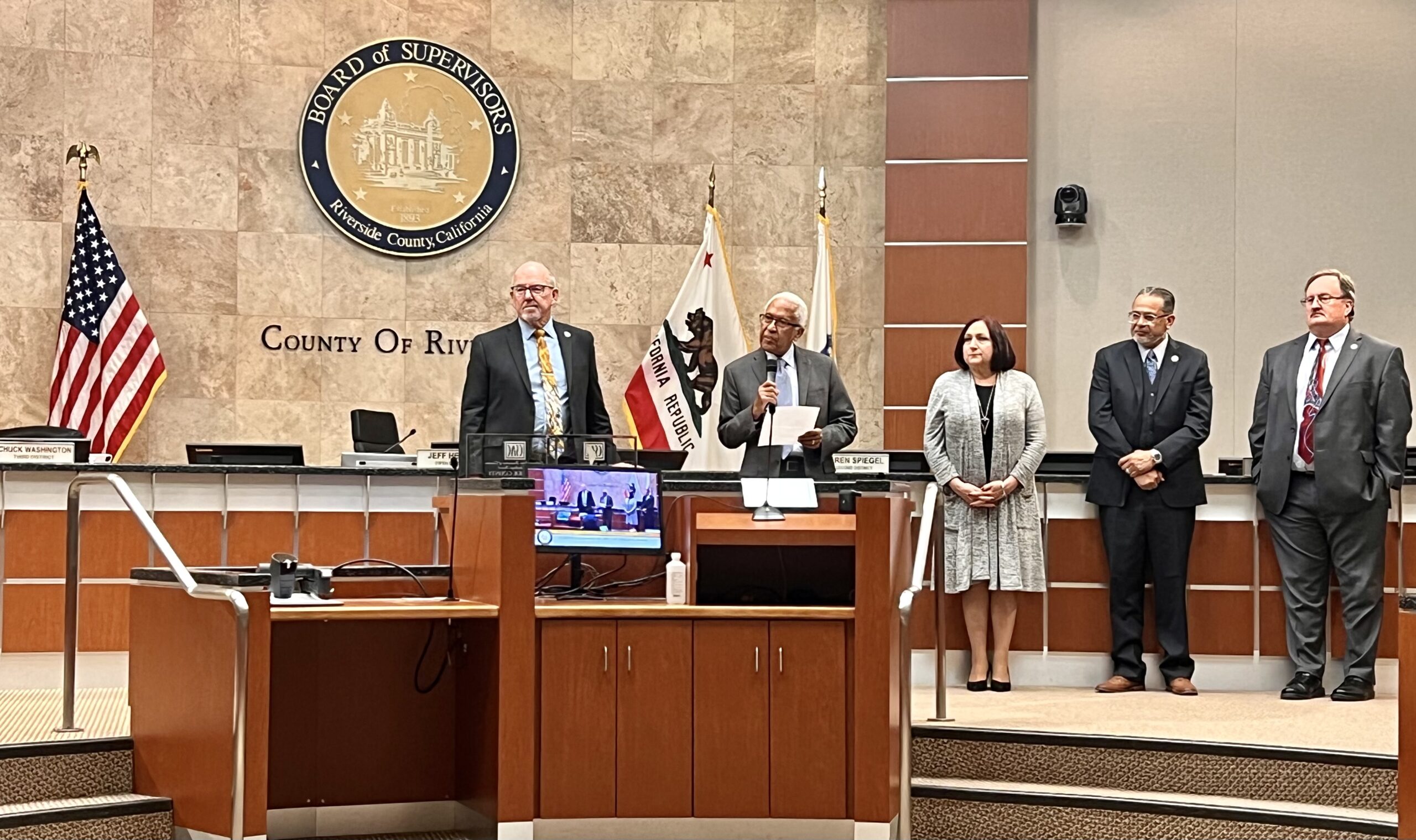In December 2021, the Riverside County Board of Supervisors approved a plan to redraw the boundaries of its five supervisorial districts as a result of the 2020 Federal Census. Six months later, in June, the American Civil Liberties Union (ACLU) filed a lawsuit on behalf of the Inland Empire United and six individuals, challenging the legality of the Riverside County redistricting plan.

PHOTO BY JOEL FEINGOLD
The suit alleges the plan is discriminatory and unrepresentative of the county’s population. The suit argues that the board should have chosen a plan that would have created two districts with a majority Latino population. By failing to make that decision, the board and county is diluting the Latino vote, and limiting the Latino population’s opportunity to equally participate in the county political process, according to the ACLU filing.
On June 14, 2022, the legal action was filed in the Riverside County Superior Court. With no delay, apparently anticipating the litigation, the county counsel filed a motion to shift the case to the to the U.S. District Court for the Central District of California, Eastern Division.
The plaintiffs filed a motion to return the case to the state Superior Court. A hearing was scheduled for Dec. 2, but the federal court decided the filings from both the ACLU and county counsel were sufficient to make the decision, which is still pending.
The attorneys for the plaintiffs argued that the federal court lacked jurisdiction since their action was based solely on California election law. The state’s Fair Maps Act (FMA) is the basis for their filing. Although the Federal Voting Right Act (VRA) is referenced, that was only once. Further they argued that state law incorporates the VRA in its language.
The court asked both parties to respond to its question regarding whether the FMA establishes a cause of action against a local redistricting body for failure to properly apply the act’s mandatory ranked criteria or “adopting district boundaries for the purpose of favoring or discriminating against a political party” and whether the state constitution, independently or in conjunction with the FMA, is a basis to challenge a redistricting scheme that denies a cohesive bloc of minority voters the opportunity to elect their candidates of choice.
The ACLU response stressed that its litigation was primarily based on the Fair Maps Act, which prohibits establishing boundaries that favor or discriminate against political parties. Further, both the act and State Constitution allow for challenges to protect individual’s and a class member’s right to vote and elect a candidate of choice.
The county’s response stressed that the plaintiff’s initial filing made a strong case of relying on the VRA.
“Plaintiffs included approximately forty paragraphs in their complaint tracking the language and standards of the VRA in order to allege an actionable apportionment claim, and why Plaintiffs rejected Defendants’ offer to stipulate to a remand if Plaintiffs would amend the complaint to delete the allegations regarding the Redistricting Plan’s failure to comply with the VRA.”
The ACLU’s final response argued that a state court could make a ruling without relying on the VRA and, therefore, the case should be remanded to the Riverside County Superior Court.
Neither the June 2022 primary nor the November general election were targets of the litigation. If the ACLU prevails, a representative said they hope the 2024 primary and election will be held with revised districts.
The Federal Court canceled a scheduled hearing for oral arguments on Dec. 2 and will make its ruling based on the written submissions.
As the county goes through this legal process, it’s important to note that the county believes it went through rigorous statistical analyses by well-respected experts and consultants to ensure that all voters have a meaningful ability to elect the candidates of their choice. This method included analyzing citizen voting age population data, a racially polarized voting analysis and an opportunity to elect report, in addition to holding many community meetings and public hearings, to ensure that residents have fair and equal representation.
With the recent electoral win from Yxstian Gutierrez for the 5th District supervisor seat, there will soon be two Latino supervisors in the fourth and fifth districts.




